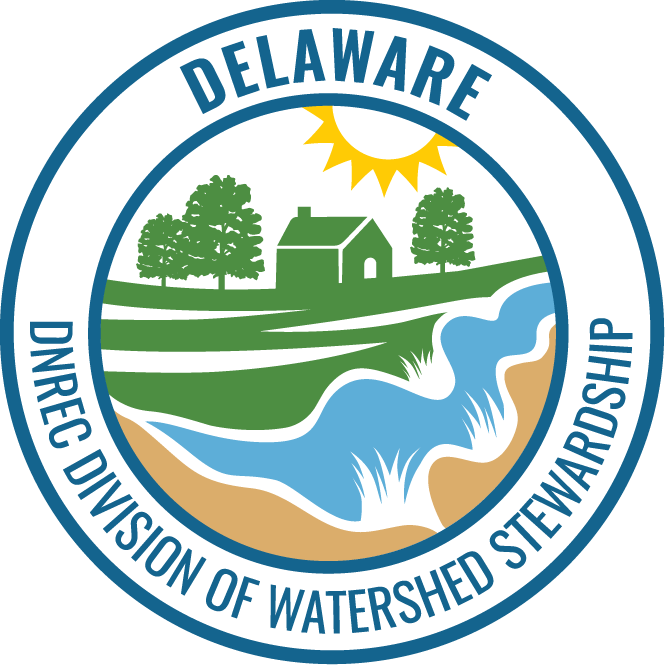
Facebook Twitter Instagram YouTube
Written on: March 16th, 2017 in Wetland Restoration
By Andrew Martin, Delaware Wild Lands field Ecologist
The Great Cypress Swamp once covered nearly 60,000 acres. Although a long history of ditching and draining for agriculture and development has reduced its vast expanse, the Swamp remains Delmarva Peninsula’s largest contiguous forest and largest freshwater wetland.
For the last 50 years, Delaware Wild Lands (DWL) has been strategically purchasing and restoring this delicate ecosystem. The first parcel that DWL ever acquired was Trussom Pond in 1961. This purchase launched our efforts to protect Delaware’s iconic cypress swamp habitat. Today, DWL owns and manages more than 10,5000 contiguous acres of the Great Cypress Swamp in Sussex County and overlapping the state line into Maryland.
Trussum Pond and the 1,200 acres of unique wetlands associated with it, were handed over to the Delaware State Parks system in 1991, but our commitment to the private protection of wetlands continues. Today, as Delaware’s largest non-profit non-governmental landholder, DWL owns more than 21,000 acres throughout Delaware, and we’re actively engaged in wetland restoration in all three counties.
The Great Cypress Swamp is home to our largest and most ambitious wetland restoration work. It also contains the headwaters of the Pocomoke River, an important tributary to the Chesapeake Bay. In 2011, we installed a series of water control structures in the historic ditches, allowing us to hold back millions of gallons of water that otherwise would have drained away. In only six years, we have rehydrated hundreds, if not thousands of acres of the Swamp.
Our wetland restoration in the Great Cypress Swamp began, perhaps surprisingly, with a 150-acre timber harvest. At the time, this area was a dry woodland. Harvesting timber helped us prepare the site as we began redirecting water and creating a restored emergent wetland. The revenues from timber sales are reinvested back into restoration expenses.
Since 2011 we’ve planted 173,000 native trees – a few thousand Baldcypress seedlings throughout, and tens of thousands of Atlantic White-cedar planted in the transitional and upland areas. Later this spring, we’re planning to plant 21,000 more trees.
As ecological systems are restored in the Swamp, a rich diversity of animal species is also returning. Each spring, hundreds of acres of newly-flooded woodlands echo with the “clack-clack-clack” of Carpenter Frogs and the mating calls of other species of frog. In some places, mature trees are dying in standing water, providing habitat for Red-headed Woodpeckers, Wood Ducks, owls, and other cavity nesters.
Spotted Turtles – named by the Endangered Species Coalition as one of the top ten species most threatened by habitat fragmentation – now have hundreds of new acres to spread out and spawn. A new abundance of seed from wetland grasses, aquatic insects, amphibians, and even fish now provide food for wading birds like herons and egrets, and waterfowl like Mallards and Black Ducks. It is not uncommon to see dozens of Bald Eagles and other raptors soaring overhead.
Because of its delicate and sensitive nature, the Great Cypress Swamp – like all Delaware Wild Lands properties – is not open to unscheduled visitation. We do, however, offer guided tours. And the next opportunity for the public to visit the Swamp is even more fun than usual! Come join us on Saturday, May 20 for some great music at our annual Baldcypress Bluegrass Festival.
We’ll have five foot stompin’ bands playing all day from 12-6PM on a stage that backs right up to 150-year-old Baldcypress trees. Craft beers and wines will be flowing and several food trucks will be serving a delicious menu. New this year is a craft vendor area with members of the Dewey Artist Collaboration and DNREC’s Mobile Science Lab with interactive exhibits about the Chesapeake Bay Watershed.
Tickets to the festival include free bus tours through the Great Cypress Swamp that will pass right by our massive wetland restoration sites. Tickets are only $25 in advance or $35 at the gate. All proceeds benefit Delaware Wild Lands. Visit www.dewildlands.org or http://facebook.com/DelawareWildLands/events for more information and tickets.